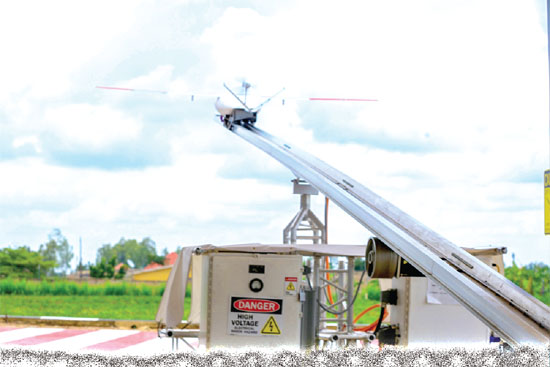
Medical drone services free for patients, health agencies; Govt absorbs full cost
The cost of delivery of essential medical supplies through the use of unmanned aerial vehicles (drones) will not be borne by patients who need them or the medical facilities that placed the orders.
Answering questions about who is likely to bear the cost of medical deliveries through drones in an interview with the Graphic Business in Accra at the weekend,
He explained that monies raised for the project would also come from corporate institutions as part of their corporate social responsibility (CSR), adding that “those companies will be rewarded as usual through tax rebates, among other things, to enable them to do more as their CSR activities demand.”
“What we should also know is that the project is a purely Public Private Partnership (PPP) project”,
Parliamentary approval
In the second week of December last year, Parliament approved the drones for medical delivery after three failed attempts. It is estimated that the government is likely to spend about $12 million in four years for the project.
The Ghana Health Service (GHS) had introduced the deal to help deliver blood and essential medicines across the country, especially to rural communities.
The GHS had held that the deal was extremely useful and called on all Ghanaians to support the project.
Cost saving
According to the Director-General, the introduction of the drone services was part of a grand agenda to transform the health service and to also use more
“Through the drone deliveries, we will have areas which are underserved have supplies because once they make the request, the drones will fly with their specifications to meet the demand of their patients”, he said.
He said for instance that the CHIP
He said because the drones would be available all day, hospitals and health facilities would be supplied as and when they needed them to avoid wastage in the system.
On how the cost of flying drones was cheaper than the use of ambulances and other vehicles, he
Again, he noted that the government was not going to spend any money
He said the company, Zipline, would be the owners of the drones, and that they would deliver only on request and paid per every delivery.
Job creation
In terms of job creation, he said the project had been designed to accommodate a number of people from different backgrounds.
They include pharmacy technicians, nurses, pilots and technicians of all sorts, adding that just like what was practiced in Rwanda, all the workers would be Ghanaians.
Project details
He said the project would first serve areas within the Eastern Region, including all of the Afram Plains, Volta Region, parts of Greater Accra and the Ashanti Region.
He said there would be three other
